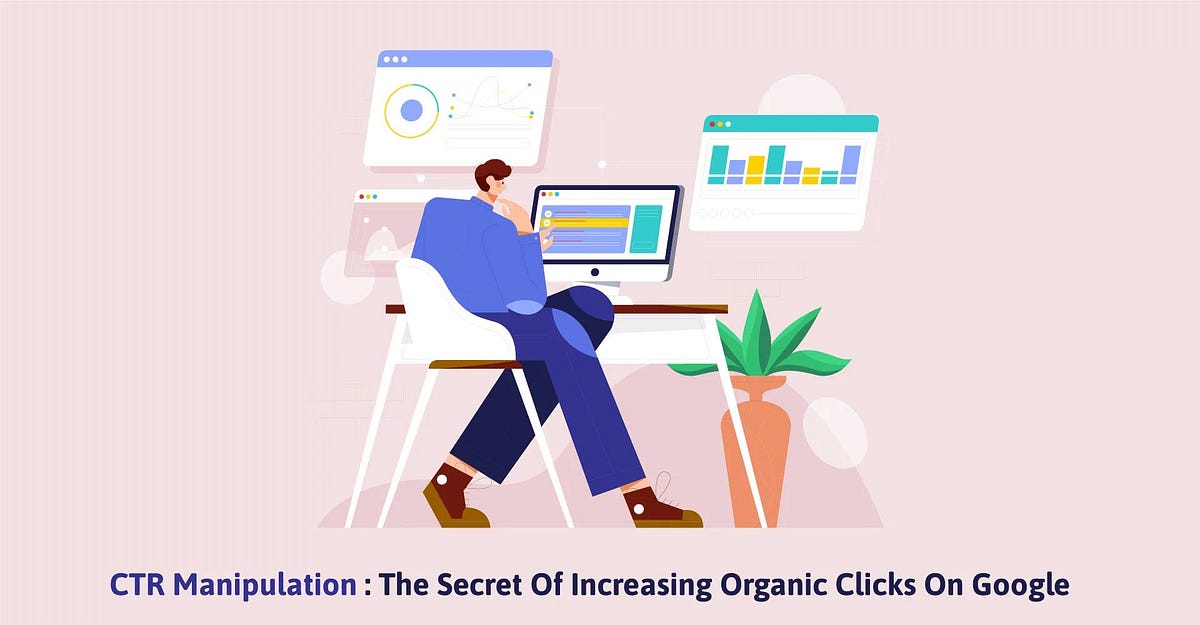Exploring the Relationship In Between CTR Manipulation Solutions and Customer Actions
In the realm of digital advertising and marketing, the influence of click-through price (CTR) adjustment solutions on individual behavior continues to be a complicated and fascinating topic. As on the internet systems progressively depend on CTR metrics to measure the success of web content, items, and services, understanding just how these manipulated rates influence individual interaction and decision-making procedures is critical. The interplay between CTR adjustment and customer behavior questions concerning authenticity, dependability, and the honest ramifications of such techniques. By exploring the elaborate connection in between CTR manipulation solutions and customer behavior, fascinating understandings emerge that may improve our understanding of digital advertising and marketing approaches and their impacts on customers.
Effect of CTR Control on Habits
Evaluating the influence of Click-Through Price (CTR) control on individual actions discloses important insights right into the dynamics of online interaction. CTR manipulation includes artificially inflating the variety of clicks on a particular web link or advertisement to deceive users and search engines. This method can bring about an altered assumption of a website's popularity or significance, inevitably affecting user habits.

In addition, CTR manipulation can alter the data made use of by formulas to individualize customer experiences. This can result in customers being served material that does not align with their preferences or interests, eventually bring about a decrease in individual fulfillment and interaction. Recognizing the influence of CTR adjustment on individual actions is important for keeping openness and rely on on the internet interactions.
Individual Involvement With Manipulated CTR
User interaction with controlled CTR data frequently results in skewed understandings of on-line web content popularity and relevance. When users communicate with content based upon unnaturally filled with air Click-Through Fees (CTR), they may believe that specific details, products, or services are much more prominent or credible than they really are. This can result in users making decisions based on misleading information, bring about possibly undesirable end results.
Interaction metrics like sort, shares, remarks, and time spent on a web page are typically influenced by CTR manipulation. Users might be more likely to involve with content that shows up to have greater interaction rates, further bolstering the cycle of manipulated perceptions. As a result, web content developers and marketers may prioritize producing content visit homepage that produces high CTR as opposed to concentrating on producing truly useful and appropriate product.

Psychological Impacts of CTR Adjustment

Additionally, the mental effects of CTR control can also show up in modified decision-making procedures. Individuals might be more likely to click on content only based upon its viewed popularity, as opposed to its actual worth or importance to their needs. This behavior shift can result in a surface engagement with on-line material, where customers might overlook top quality but less prominent offerings for those with unnaturally improved CTRs.
In essence, the emotional ramifications of CTR the original source adjustment highlight the significance of keeping openness and authenticity in online communications to cultivate real individual interaction and trust.
Honest Factors To Consider in CTR Manipulation
CTR control increases worries about deceiving users, misshaping information analytics, and jeopardizing the credibility of online content. By artificially blowing up CTR, customers may be misinformed right into clicking on web links or ads they would not have chosen otherwise, leading to a disingenuous online experience.
One more honest facet to ponder is the justness of controling CTR to acquire an unfair advantage over rivals. Involving in such methods not only breaks concepts of fair game yet additionally weakens the trust fund that individuals place in online systems. It is necessary for companies and digital marketers to promote ethical criteria in their techniques to make sure openness, credibility, and lasting sustainability in the on the internet setting.
Ramifications for Digital Marketing
With the raising dependence on digital systems for marketing objectives, the practice of adjusting click-through rates (CTR) poses substantial implications for the performance and integrity of electronic marketing methods. CTR manipulation can bring about skewed information analytics, misguiding marketers into thinking that their projects are carrying out much better than they in fact are. This can result in misallocation of resources, with firms purchasing underperforming approaches based on falsified CTRs. In addition, when individuals understand that CTRs have been controlled, it can erode rely on the brand, causing long-lasting unfavorable effects for consumer commitment and brand name credibility.
In addition, using CTR manipulation services can develop an unreasonable affordable landscape, where companies that involve in such methods gain a synthetic benefit over those that comply with moral advertising and marketing criteria. This can suppress innovation and creativity in electronic advertising and marketing, as success becomes more regarding manipulation techniques than supplying real value to customers. Inevitably, the implications of CTR manipulation for electronic marketing extend beyond short-term gains, influencing the general sustainability and integrity of advertising and marketing initiatives in the digital world.
Final Thought
To conclude, the connection in between CTR control services and customer behavior is intricate and diverse. The impact of CTR control on behavior, user involvement with adjusted CTR, psychological results, ethical factors to consider, and ramifications for electronic marketing all contribute in forming this relationship. Recognizing these characteristics is crucial for marketing professionals and scientists alike in order to browse the ethical effects and make best use of the performance of their digital advertising approaches.